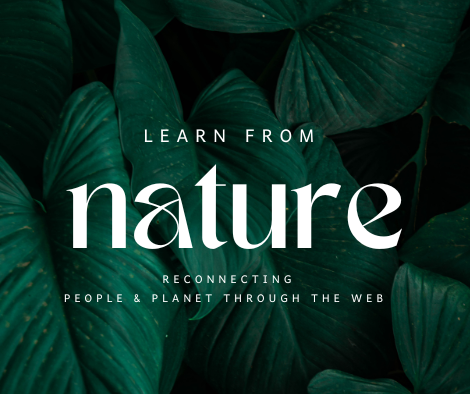
Should I swat a fly? How do you deal with ‘pests’ if you love wildlife? This question, posed by BBC Wildlife online, was similar to my own experience of a cane toad‘s visit to my own garden
Helen Pilcher explains: A few months ago I did a terrible thing. I was tending to my patio plants, barefoot, when I disturbed an ants’ nest under a pot. The feisty invertebrates were furious. They flung themselves at my toes, sinking their mandibles into my exposed pink flesh. It hurt. A lot. As my foot ballooned up, red mist clouded my judgement. I grabbed the kettle and doused my attackers with boiling hot water. A few seconds later, all that remained was a puddle full of tiny, floating bodies.
In hindsight, I am horrified at my actions. I consider myself an animal lover and protector of wildlife. My pesticide-free garden is full of wildflowers, messy corners and insect havens. The store where I keep my chicken food is visited regularly by wood mice. Like a scene from Beatrix Potter, they climb into the tall bin at night, then are too fat and too full to escape. In the morning I simply let them go, serenading them to the tune of Que Sera, Sera.
Moths I’m kind to as well. I have a light trap, which I put out at night to lure them for a closer look. The insects are unharmed and often I carefully transfer them to clear plastic pots while I identify them. Sometimes, a gravid female will lay eggs and, although it may seem ridiculous, I feel a sense of responsibility. Many’s the brood of caterpillars I have raised because their mother ‘gave birth’ in my care.
It’s time we learned to love the spiders in our bathtub and ants on our patios.
If a spider or ladybird is spotted in my house, it is dutifully caught and relocated to the outside world, yet I have, in the past, flattened flies and massacred mosquitoes. Our attitudes to the so-called ‘pests’ we share our spaces with are varied and complex. They range from the laid back ‘live and let live’ approach, where nibbled cabbages are the price paid for happy wildlife, to the vegetable patch vigilantes, an elite horticulturalist corps that come armed with spray guns and chemical weapons. There are those who would, literally, never harm a fly; and those who are prepared to lynch wasps guilt-free because, they would have us believe, “it’s either us or them”.

Illustration by Jill Calder/Central Illustration.
I don’t imagine there is a BBC Wildlife reader out there who hasn’t, at some point, deliberately killed a pest of some sort. The word ‘ecology’ derives from the Greek word oikos, meaning ‘dwelling’, and our homes and gardens are indeed their own little ecosystems. These are created via the interactions that occur between the component species.
In our human-made ecosystems, we call the shots. “It’s your space to occupy, so it’s up to you to set the rules,” says scientist and gardener Martin Coath of Plymouth University. “You get to choose what stays and what goes, what lives and what dies.”
Do you agree? What do you think? Should we respect ‘all’ organisms who are in our backyards, even the invaders that cause problems? Or should we tolerate these? Let me know your thoughts
This form the University of Melbourne, Australia :
People love invasive species
What gives an animal the right to exist?
We often protect and value animals because they are native, they are part of the system, and they should be there because they have always been there.
Dingoes are considered native, but they haven’t been in Australia for very long (one estimate is less than 5000 years). What makes them different from domestic dogs that came to Australia with Europeans? Feral dogs and dingoes are genetically very similar, and they have interbred and hybridised with one another. This can make it difficult to decide what is considered a dingo. Do you think that the small percent of genetic difference between a wild dog and a dingo is justification to protect one and mercilessly hunt the other?
ONE RESPONSE TO “PEOPLE LOVE INVASIVE SPECIES”
 Teresa Hassett says: Such a frustrating issue. Invasive species can have severe negative effects on ecosystems, but given their association with humans, they are viewed differently. This is where social values come in and interfere. These values still need to be considered during management efforts though. For example, feral cats are a huge issue in Australia, but the best solution would be to remove all cats, or only only cats that are kept indoors at all times. This definitely wouldn’t go down well. It’s all about what is valued more – human interest or the environment. Unfortunately it reaches a point when the environment is so damaged that it negatively impacts humans too.
Teresa Hassett says: Such a frustrating issue. Invasive species can have severe negative effects on ecosystems, but given their association with humans, they are viewed differently. This is where social values come in and interfere. These values still need to be considered during management efforts though. For example, feral cats are a huge issue in Australia, but the best solution would be to remove all cats, or only only cats that are kept indoors at all times. This definitely wouldn’t go down well. It’s all about what is valued more – human interest or the environment. Unfortunately it reaches a point when the environment is so damaged that it negatively impacts humans too.
Source : https://blogs.unimelb.edu.au/sciencecommunication/2017/10/06/we-ignore-the-rights-of-invasive-species/#comment-587165

